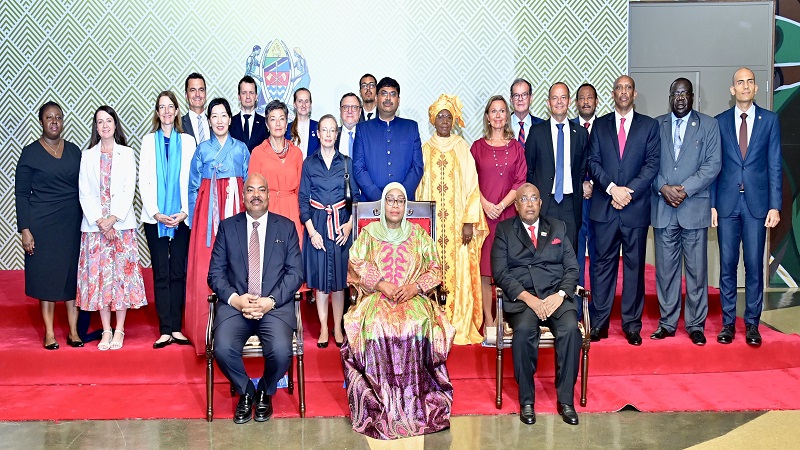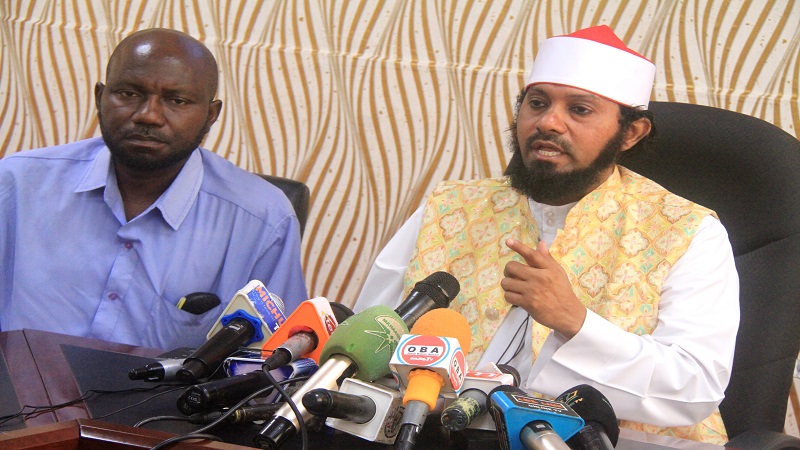Effective teaching: Need for teachers to conduct research, self-evaluation

HUMAN beings are both emotional and rational. They are made to be efficient when they have time to gather energy to effect positive changes. It is a fact that the ultimate goal of education is to produce individuals who can stand on their own, making informed decisions that benefits themselves and the society at large.
Achieving this requires educators who are well-prepared and have ample time to evaluate and plan effectively. Thus, the pursuit of well-educated and knowledgeable individuals must also prioritize the well-being of teachers.
A teacher's mood and opportunity to embrace new approaches in education are crucial to effectively facilitate the learning process. Teachers are responsible not only for imparting knowledge but also for ensuring students absorb it.
The way a teacher presents themselves and conducts lessons significantly impacts learners' understanding. Since students prefer capable teachers, it is vital to ensure educators do not face conditions that drain their energy or motivation.
Students need teachers who can spark their interest and make lessons engaging. Assertive learners quickly assess a teacher's ability, which can either motivate or demotivate them. Therefore, being a good teacher beyond possesses extensive knowledge—it also involves effectively conveying that knowledge, with mood and composure playing essential roles.
Efforts must be made by teachers and their supporters to ensure educators are both knowledgeable and skilled at transferring knowledge. Achieving this requires a conducive environment where teachers can maintain a positive mood and composure.
Teachers need adequate space to prepare, particularly as they navigate directives from higher authorities that may interfere with their responsibilities. Teachers thrive when allowed the freedom to teach without undue constraints.
Students have diverse learning needs and expectations, and teachers must address these equitably. For this, educators require stability, motivation, and the ability to manage their classrooms effectively. This stability stems from having time to prepare both academically and psychologically. The quality of a teacher is determined by their knowledge and their ability to convey it to leaners.
If a teacher can prepare lesson materials but not their mindset, the teaching process may suffer. Hence, it is essential for teachers to prepare mentally before stepping into the classroom.
Effective classroom management involves addressing learners’ varied needs and utilizing suitable teaching methods to achieve excellence. Both the content and delivery of lessons play a significant role in engaging students.
When lessons are well-prepared but delivered without a positive mood and composure, learning objectives may not be achieved. Thus, maintaining composure and a positive mood is crucial for the two core aspects of teaching: research and self-evaluation.
Research is vital for teachers to remain relevant. New teaching methodologies, curricula, and syllabi frequently emerge, necessitating continuous learning to enhance psychological and academic capabilities.
Research also empowers teachers to address diverse learner needs through increased understanding gained from reading, expert discussions, or observation.
Self-evaluation is equally important. One scholar remarked, "We are what we think we are, what others think we are, and what we think others think we are." The teaching process is inherently interactive, involving the exchange of ideas. Misunderstandings can hinder teaching effectiveness, but self-evaluation allows teachers to reflect, filter information, and improve.
Research and self-evaluation is crucial for teachers since enhances their their growth, adaptability and effectiveness in the teaching profession.
When teachers conduct reaserch they stay updated. Education is constantly evolving with new teaching methodologies, curricula, and technologies. Through research, teachers can better understand the diverse needs, learning styles and behaviors of their students, enabling them to tailor their teaching strategies effectively.
Research equips teachers with evidence-based solutions to classroom challenges, such as managing diverse learners or introducing innovative teaching techniques.
Self-evaluation encourages teachers to reflect on their teaching methods, identify areas of improvement, and implement changes to enhance their effectiveness. It helps teachers process this feedback constructively, ensuring it leads to positive changes.
By evaluating their strengths and weaknesses, teachers can better manage challenges from students, parents, or authorities, maintaining composure and professionalism. Self-evaluation fosters a mindset of continuous learning and self-improvement, vital for long-term success in the profession.
Handling constructive challenges from parents, authorities, or others also requires composure and preparation, which demand time and space. Teachers must analyze new information thoughtfully to contribute meaningfully to the educational sector.
Teaching is the art of fostering positive mental change, empowering individuals to master themselves and their environment for social and economic development.
Educational goals are best achieved when teachers have the opportunity to prepare thoroughly. By setting objectives and designing effective methodologies, teachers can ensure greater success in their classrooms.
Given the critical role of education in society, every effort should be made to provide teachers with adequate time and space they need to learn, reflect, and grow.
The mental effort required for teaching demands periods of meditation and evaluation to generate innovative ideas. Supporting teachers' mental resilience is essential for enhancing the teaching and learning process. Teaching, at its core, requires space.
Top Headlines
© 2025 IPPMEDIA.COM. ALL RIGHTS RESERVED

























